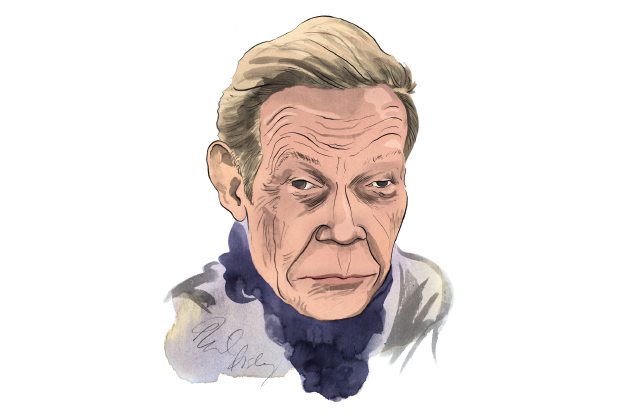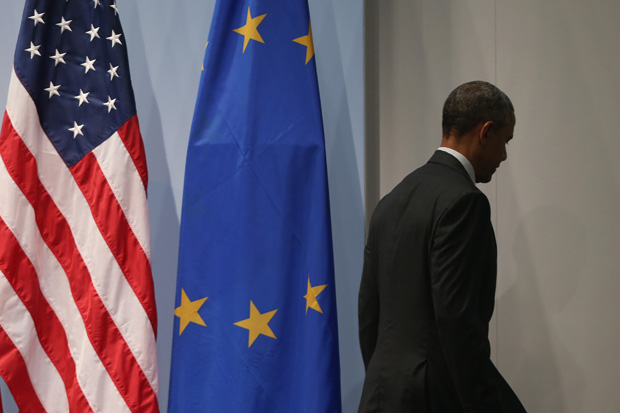It is 40 years since the band in which Paul Cook banged the drums, the Sex Pistols, detonated a bomb called punk in post-war Britain. The shards are still visible. ‘We didn’t have a manifesto, but we wanted to shake things up,’ he says. ‘We didn’t know how much we would shake things up. Music, art, design, films, books. Punk is part of our social and cultural history.’
We’ve come a long way from 1976, when Johnny Rotten and ‘Anarchy in the UK’ put the pestilential Pistols on the front pages, and a prime-time television exchange with Bill Grundy, the celebrated ‘fucking rotter’ interview, kept them there. The band were banned from concert venues, denounced in every bully pulpit, damned as ‘illiterate sub-humans’. The work of the devil, no less.
The teenage Cook was an apprentice electrician at the Stag brewery in Mortlake, trying to find his path to freedom. ‘Get a trade, that’s what they used to say. And when you were done, you’d get a gold watch. I’m not disrespecting that life, but I wanted to be free of those constraints.’
A Shepherd’s Bush lad, Cook was pally with Steve Jones, the band’s guitarist, from childhood. They attended (sometimes) the Christopher Wren School on the White City estate, where he enjoyed himself, particularly on the football field (he was a good amateur player) but, like many intelligent working-class children, formal education passed him by. The son of a carpenter, ‘though I don’t make a big thing of my working-classness’, he read Alan Johnson’s autobiography, This Boy, about a similar west London upbringing, with admiration. ‘Though I didn’t have things as hard as he did.’
Cook and Jones ‘were pretty sharp kids. We loved music and fashion, as you do. It was all part of working-class life. I was into Motown, the Temptations, the Four Tops, and those groups. Ska, too. That late Sixties skinhead thing.’
Putting together a band called The Strand, Cook and Jones needed a place to rehearse, and something to play on. They found rehearsal space in the Riverside studios, at Hammersmith, which are now being expensively restored for the benefit of wealthy westsiders but which were then an empty shell by rotting docks. ‘A friend’s father had a key to the building, so we just slipped in.’
For larks the pair would take themselves off to World’s End. ‘The no. 17 bus, every weekend. We used to hang round a shop run by Malcolm McLaren, which seemed to change its name every month. It was the only shop which had a bit of an edge. In many ways, although this was the mid-Seventies, it still felt like the Sixties hadn’t ended.
‘We used each other, I’d say. Steve and myself could see the benefits of hanging round the shop, and I think Malcolm saw himself as Fagin, who wanted to turn us into his band of urchins. We were looking for a bass player and Glen Matlock was working in the shop. Then lo and behold, John Lydon turned up and took our eye. We needed a singer and he was bright, thought a lot of himself and became our mouthpiece. No matter what people have said about him, and they’ve said a lot, he was fantastic for us.’
And so the great adventure began. ‘You must remember how different things were back then. In many ways it was a very conservative country. The war was still in people’s minds. There were bomb sites in London, and I remember the three-day week, when we sat around with candles. There were a lot of very angry young people who thought, “What is this Great Britain we’ve been told about that is not all that great?”
‘They were violent times. I was beaten up by a bunch of teddy boys in Shepherd’s Bush. You didn’t have to be that different to stand out. It was quite difficult for Tom, my dad, when the media ran stories about us. Pistols outrage! Monarchy outrage! He liked to go down the pub and enjoy a pint with his mates. My mum used to stand up for me. She’d chase people down the road!’
Punk’s ‘Bastille moment’ came not in London but at a concert in Manchester on 4 June 1976. The venerable Free Trade Hall, where Gladstone once addressed 6,000 people, resounded to a different strain that evening. Overnight, it seemed, the world of rock music came crashing down like Humpty Dumpty, and the pieces could not be put back together again.
‘We tapped into the mood of the country, certainly among young people, and things grew and grew. There are parallels with New York because both cities were on their arses. But the kinds of punk rock that came from the two cities were totally different animals. We weren’t influenced by them at all. For us it was far too pretentious. And they weren’t influenced by us either.’
In modern British history, 1976 stands out as a shocker. March brought Harold Wilson’s resignation as prime minister, and the infamous ‘Lavender’ honours list for his cronies. August saw riots at the Notting Hill carnival, and the woeful September song was a humiliating IMF bailout which confirmed the United Kingdom as the basket-case of Europe. No wonder so many disaffected young people thought ‘Anarchy in the UK’ was not so much a prophecy as a statement.
‘There was a lot of dross. There always is. And punk turned into a caricature. But the British love caricatures. Look at the Carry On films. You can go back to Dickens, if you like.’ Eight years ago, when they reformed for a few shows, the Pistols were supported one night by Ray Davies, the Kinks man, who sent them a note after watching Lydon/Rotten gurning for England. ‘It’s nice to know,’ he wrote, ‘that the age of vaudeville isn’t yet over.’
Is there a ‘punk position’ on the EU referendum? ‘I think we have to go with it, though I say that with some reluctance. If you look at history, and I’m interested in history, you see what Europe has been like in the past. There’s a lot I don’t like about the European Union but I think coming out would be like going back to Little England.
‘I feel quite at home in cities like Paris, Berlin and Barcelona, so I suppose I feel European, which I know is not the same thing as belonging to the EU. But I can tell you this — you will never curtail the uniqueness of British youth culture. We will never end up with homogenised European pop music here.’
Got something to add? Join the discussion and comment below.
Get 10 issues for just $10
Subscribe to The Spectator Australia today for the next 10 magazine issues, plus full online access, for just $10.
You might disagree with half of it, but you’ll enjoy reading all of it. Try your first month for free, then just $2 a week for the remainder of your first year.














Comments
Don't miss out
Join the conversation with other Spectator Australia readers. Subscribe to leave a comment.
SUBSCRIBEAlready a subscriber? Log in